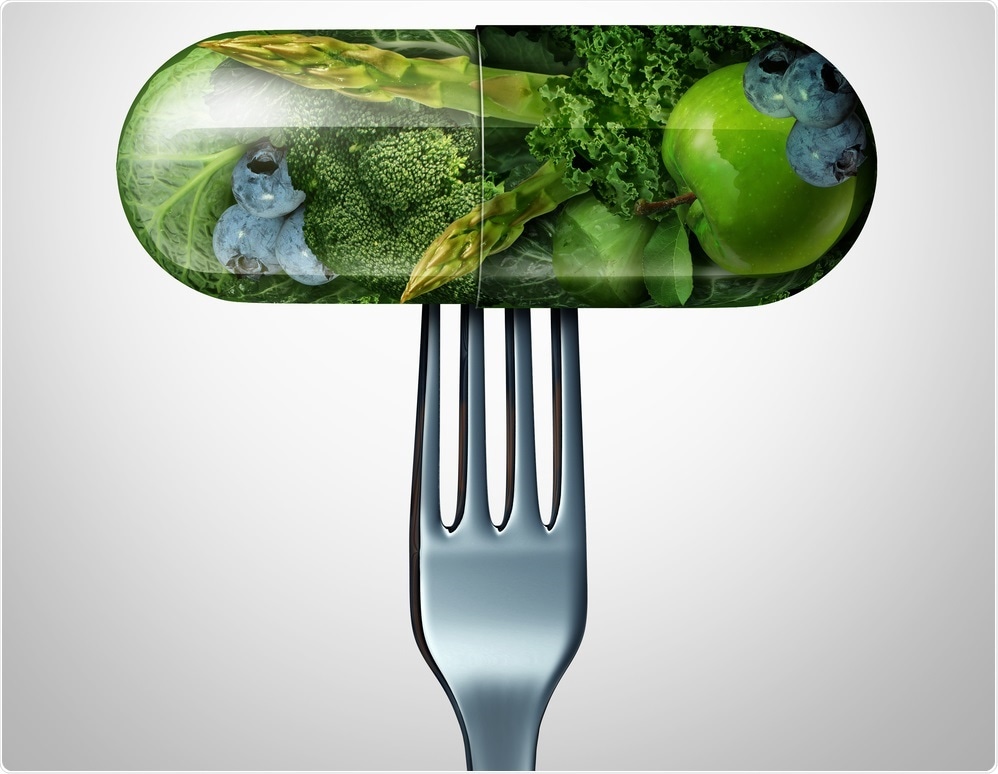
Doing more harm than good: Scientists uncover harmful effects of dietary supplements
This week, two independent reports highlight the hidden dangers associated with widely available dietary supplements. The new research studies have revealed serious consequences of young people taking dietary supplements sold for weight loss or muscle building and the FDA issued a warning for the use of periwinkle extract during pregnancy.
 Lightspring | Shutterstock
Lightspring | ShutterstockDietary supplements have been adopted as an increasingly popular means for enhancing desirable physical characteristics. A survey conducted by the Council for Responsible Nutrition in 2018 found that the use of supplements in the US had increased by 10% in less than a decade. It is now estimated that three-quarters of American adults take some form of dietary supplement.
Despite the claims that such supplements can have health benefits or help meet body-building, diet and other performance targets, these products are not regulated or independently tested. The safety and efficacy of many marketed dietary supplements are thus not clear.
Having noticed the increasing use of dietary supplements amongst children and young adolescents, researchers at the Harvard T.H. Chan School of Public Health, Boston, Massachusetts decided to investigate the effect this was having on their health.
Supplements come with health risks
They analysed adverse event reports for individuals aged 0-25 years included in the U.S. Food and Drug Administration Adverse Event Reporting System on the food and dietary supplements database between January 2004 and April 2015.
The scientists discovered that almost a thousand adverse event reports that were linked with the use of dietary supplements sold for weight loss, muscle building, or energy. Around 40% of these had severe medical outcomes, including death.
The risk of a severe medical outcome after taking such supplements was almost three times greater than with vitamins. This supports findings from other studies that have linked weight-loss and muscle-building supplements with stroke, testicular cancer, liver damage, and even death.
Senior author S. Bryn Austin, commented that may arise as a consequence of many of the supplements available to young people having been adulterated with prescription pharmaceuticals, banned substances, heavy metals, pesticides, and other dangerous chemicals, concluding:
FDA advises against vinpocetine during pregnancy
Similarly, the FDA issued a warning against an ingredient found in dietary supplements targeted at increasing cognitive performance, weight loss, and increased energy. Vinpocetine, which is derived from derived from an alkaloid found in periwinkle, has been shown to be associated with adverse reproductive effects and may cause miscarriage or other harmful effects to a developing foetus.
In their report the FDA said “…today we’re advising pregnant women and women who could become pregnant not to take vinpocetine. We are also advising firms marketing dietary supplements containing vinpocetine to evaluate their product labelling to ensure that it provides safety warnings against use by pregnant women and women who could become pregnant.”
Sources:
FDA. Statement on warning for women of childbearing age about possible safety risks of dietary supplements containing vinpocetine. 3 June 2019. fda.gov
Or F, et al. Taking Stock of Dietary Supplements' Harmful Effects on Children, Adolescents, and Young Adults J Adolescent Health 5 June 2019. doi.org/10.1016.






















.png)












No hay comentarios:
Publicar un comentario